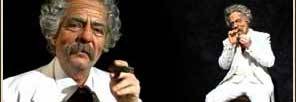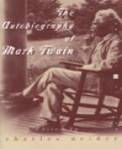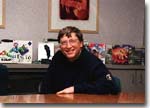 设为首页
设为首页
 加入收藏
加入收藏
英国的莎士比亚戏剧节
英国文艺复兴时期的戏剧家、诗人莎士比亚(Shakespeare),被马克思誉为“最伟大的戏剧天才”。他出生于1564年4月23日,巧合的是,又卒于1616年4月23日。于是,英国人便把每年的4月23日定为“莎士比亚戏剧节”。
戏剧节成为英国一年一度的文艺节日,每年都在莎士比亚的故乡斯特拉特福(Stratford-on-Avon)和首都伦敦同时举行。届时各剧团竞相演出莎士比亚的剧作,其中著名的有《李尔王》、《罗密欧与朱丽叶》、《哈姆莱特》、《奥赛罗》、《第十二夜》、《威尼斯商人》、《暴风雨》、《终成眷属》等。他的作品从各方面深刻地、艺术地揭示了他那个时代的种种矛盾和斗争。
1926年“莎士比亚戏剧节”前夕,斯特拉特福镇的“纪念剧院”突然原因不明地毁于火灾,消息传出,举国震惊。当时被称为“现代莎氏”的肖伯纳(George Bernard Shaw)建议重建一座新的“纪念剧院”。在全国和国际捐款之前,斯特拉特福镇市一夜之间就捐集现款1600英镑。新的“纪念剧院”终于在1932年“莎士比亚戏剧节”前夕建成,并由威尔斯亲王主持了揭幕仪式。
“莎士比亚戏剧节”的活动,不仅在英国盛行,后来还逐渐跨越了国界,在很多讲英语的国家也举行这样的传统节日盛典。
The famous soldiers of Xi’an
There is a famous place in China. Life -sized statues were put in the tomb of the first emperor of the Qin dynasty 2200 years ago .His name was Qin Shi Huang Di. For many years, no one knew the statues were there. In the 1900s, when scientists began to explore the old part of the city of Xi’an, they found the wonderful underground army of more than seven thousand terracotta soldiers. ( Terra -cotta is made from red clay. ) Some of the statues had been broken over the years, but scientists are putting them back together. Other terra-cotta soldiers have been left alone. Different scientists will find them in the future.
People from all over the world travel to Xi’an to see these wonderful terra-cotta soldiers.
Words
life-sized /5laif5saizd5/ adj. (艺术作品)与实物大小一样的
statue/5stAtju:/ n. 雕像;塑像
tomb/tu:m/ n. 墓;坟地
emperor/5emp[r[/ n. 皇帝
dynasty/5dain[sti/ n. 王朝
terra-cotta/7ter[5kRt[/ n. 陶俑
clay/klei/ n. 泥土;黏土
Mark Twain
One of Mark Twain’s bad habits, in the eyes of his wife, was his custom of calling on neighbour without his collar or tie on. One afternoon just when he returned from a neighbour in the usual degree of undress, his wife scolded him for his negligence, so he went to his study quickly and in a few minutes he sent a small package back to his study quickly and in a few minutes he sent a small package back to his neighbour’s house. An accompanying note read somewhat as follows:
“Just a little while ago, I visited you for about half an hour without my collar and tie on. The missing things are enclosed. Will you please watch them for thirty minutes and then return them to me?”
马克.吐温
马克·吐温的一个恶习,在他夫人看来,就是去邻居家串门,总是不戴硬领或领带。一天下午,马克·吐温照例衣冠不整地去看望了邻居,刚回到家就因不修边幅而被夫人训了一顿,于是他直奔书房,没几分钟便派人把一小包东西送到邻居家,附条大意如下:
“片刻之前,登门造访,历半小时许,未戴硬领,未打领带,兹附上所缺之物,希惠予注视三十分钟归还。”

Mark Twain is one of America's truly unique and defining personalities. His ability to tap into American culture and humor gave him an invaluable insight in his writings and speeches. Known for his realism, memorable characters, bluntness and hatred of hypocrisy and oppression, Twain is definitely one of the most recognizable figures in American history.
Mark Twain was born Samuel Langhorn Clemens on Nov. 30, 1835, in Florida, Mo. His parents John Marshall Clemens and Jane Lampton's families were originally from Virginia, and the couple had made four moves westward prior to Sam's birth. Sam was the couples' sixth child and in 1839, the family moved to nearby Hannibal, Mo. It was in this small river town that Clemens would spend his boyhood years.
During this crucial time in his life, Clemens developed a strong tie to the Mississippi River, along which Hannibal is located. Steamboats landed at the town three times a day, and these river chariots captured Clemens' imagination as he dreamed of one day becoming a steamboat captain.
Despite Clemens' love for the river, his first job was not on the mighty Mississippi, but as a printer's apprentice to Joseph Ament, who published the Missouri Courier. Clemens would take the job in 1848, a year after his fathers death. In 1851, he began setting type for and contributing sketches to his brother Orion's Hannibal Journal. During the next two years, he continued at the Journal and would take over as editor in Orion's absence. Clemens even got a few of his sketches published in the Philadelphia Saturday Evening Post in 1852.
Clemens left Hannibal in 1853, but would not completely cut his ties with his hometown. While working as a printer in New York City and Philadelphia, he had travel letters published in the Hannibal Journal. He would return to the Midwest in 1854, at age 19, and spent the next four years living in several cities in the area.
The introduction of Mark Twain
 Mark Twain (Samuel Clemens) has been likened to Walt Whitman as one
of the most quintessentially American writers this
country has produced. While this book does not contain
Mark Twain's complete autobiography, the stories do
leave us with more of a flavor for the man and the
legend. As Charles Neider writes in his introduction,
"Mark Twain's autobiography is a classic of American
letters to be ranked with the autobiographies of Ben
Franklin and Henry James... It has the marks of greatness
in it—style, scope, imagination, laughter, tragedy."
Mark Twain (Samuel Clemens) has been likened to Walt Whitman as one
of the most quintessentially American writers this
country has produced. While this book does not contain
Mark Twain's complete autobiography, the stories do
leave us with more of a flavor for the man and the
legend. As Charles Neider writes in his introduction,
"Mark Twain's autobiography is a classic of American
letters to be ranked with the autobiographies of Ben
Franklin and Henry James... It has the marks of greatness
in it—style, scope, imagination, laughter, tragedy."
It becomes clear that Mark Twain was much more than just a writer. He was a father, a husband, a son, a brother, a friend. With these bits of memory, we share the tragedies, triumphs, and adventures of his life. These memories are colored by emotions, and tempered by the fact that the book appeared only after he was dead. As he says, "Now then, that is the tale. Some of it is true."
Internet
We are all busy talking about and using the Internet (因特网), but how many of us know the history of the Internet?
Many people are surprised when they find that the Internet was set up (建立 ) in the 1960s, At that time, computers were large and expensive. Computers networks (网络) didn't work well. If one computer in the network broke down, then the whole network stopped. So a new network system (系统) had to be set up. It should be good enough to be used by many different computers. If part of the network was not working, information (信息) could be sent through another part. In this way computer network system would keep on working all the time.
At first the Internet was only used by the government (政府), but in the early 1970s, universities, hospitals and banks were allowed to use it, too. However, computers were still very expensive and the Internet was difficult to use. By the start of the 1990s, computers became cheaper and easier to use the Internet every day. Sending e-mail (电子邮件) is more and more popular among students.
The Internet has now become one of the most important parts of people's life.
我们正处于一个计算机时代,人人都在上网,人人都在玩着鼠标。因特网成为了人们生活中最重要的组成部分之一。
比尔,盖茨是计算机的天才,是微软帝国的创立者。他的成功在于他的天才,他的成长环境,他的艰苦创业……。
我们如果想跟上时代的步伐,必须了解世界,放眼未来,必须正视自己,找出差距,勇往直前。
译文:We are in a computer era when everybody is on line, working with a mouse. Internet has become one of the most important parts of our life.
Bill Gate, the founder of the Software Empire, is a great genius of the computer. He is successful because of his talent, his hard work as well as the conditions in which he has been growing.
To keep up with the time, we must understand the world, looking forward to the future, clear about what we need and what we have got to do in order to make more progress.
Bill Gates
 William (Bill) H. Gates is chairman and chief software architect of
Microsoft Corporation, the worldwide leader in software,
services and Internet technologies for personal and
business computing.
William (Bill) H. Gates is chairman and chief software architect of
Microsoft Corporation, the worldwide leader in software,
services and Internet technologies for personal and
business computing.
Born on Oct. 28, 1955, Gates grew up in Seattle. Gates attended public elementary school and the private Lakeside School. There, he discovered his interest in software and began programming computers at age 13.
In 1973, Gates entered Harvard University as a freshman, where he lived
down  the hall
from Steve Ballmer, now Microsoft's chief executive
officer. While at Harvard, Gates developed a version
of the programming language BASIC for the first microcomputer
- the MITS Altair.
the hall
from Steve Ballmer, now Microsoft's chief executive
officer. While at Harvard, Gates developed a version
of the programming language BASIC for the first microcomputer
- the MITS Altair.
In his junior year, Gates left
Harvard to devote his energies to Microsoft, a company
he had begun in 1975 with his childhood friend Paul
Allen. Guided by a belief that the computer would
be valuable tool on every office desktop and in every
home, they began developing software for personal
computers. Gates' foresight and his vision for
personal computing have been central to the success of Microsoft and
the software industry.
success of Microsoft and
the software industry.
Under Gates' leadership, Microsoft's mission has been to continually advance and improve software technology, and to make it easier, more cost-effective and more enjoyable for people to use computers.
 In 1999, Gates wrote Business @ the Speed of Thought, a book
that shows how computer technology can solve business
problems in fundamentally new ways. The book was published
in 25 languages and is available in more than 60 countries.
Business @ the Speed of Thought has received
wide critical acclaim, and was listed on the best-seller
lists of the New York Times, USA Today,
the Wall Street Journal and Amazon. com. Gates'
previous book, The Road Ahead, published in
1995, held the No. 1 spot on the New York Times'
bestseller list for seven weeks.
In 1999, Gates wrote Business @ the Speed of Thought, a book
that shows how computer technology can solve business
problems in fundamentally new ways. The book was published
in 25 languages and is available in more than 60 countries.
Business @ the Speed of Thought has received
wide critical acclaim, and was listed on the best-seller
lists of the New York Times, USA Today,
the Wall Street Journal and Amazon. com. Gates'
previous book, The Road Ahead, published in
1995, held the No. 1 spot on the New York Times'
bestseller list for seven weeks.
Gates was married on Jan. 1, 1994, to Melinda French Gates. The couple has three children. Gates is an avid reader, and enjoys playing golf and bridge.
原文欣赏
Steven Jobs
The designer of Apple Computer, Steven Jobs, was not quite successful in his early years. He was not among the best students at school, and from time to time he got into trouble with either his schoolmates or his teachers. But he was full of new ideas, which few people saw the value of them. Things remained the same when he went up to college and he dropped out halfway.
Steven Jobs worked first as a video game designer at Atari. He worked there for only a few months and then he set out to travel to India. He hoped that the trip would give him more ideas and give him a change in life for the better.
After he had returned from India, he began to live on a farm in California. And then, in 1975, Steven Jobs set about making a new type of computer in his bedroom and actually built it in his garage. He chose the name “Apple” because it reminded him of a happy summer he once spent on an orchard in Oregon.
His Apple Computer turned out to be such a great success that Steven Jobs soon became worldwide famous. Today he has lots of factories and he is very famous all over the world.
Notes:
①designer [di5zain[]n. 设计者 ②successful [s[k5sesful]adj. 成功的
③value [5vAlju:]n. 价值 ④remain [ri5mein]vi. 仍是,保持
⑤video [5vidi[u]adj. 电视的,视频的 ⑥actually [5Aktju[li]adv. 实际
⑦garage [5gAra:V]n. 车间 ⑧remind [ri5maind] vt. 使想起
⑨orchard [5R:tF[d]n. 果园
A letter
My advice to students: Education counts (11/4/98)
By Bill Gates
Hundreds of students send me e-mail each year asking for advice about education. They want to know what to study, or whether it's okay to drop out of college since that's what I did.
A smaller number of parents send messages, often poignant, seeking guidance for their son or daughter. "How can we steer our child toward success?" they ask.
My basic advice is simple and heartfelt: Get the best education you can. Take advantage of high school and college. Learn how to learn.
It's true that I dropped out of college to start Microsoft, but I was at Harvard for three years before dropping out--and I'd love to have the time to go back. As I've said before, nobody should drop out of college unless they believe they face the opportunity of a lifetime. And even then they should reconsider.
Kathy Cridland, a sixth-grade teacher in Ohio, wrote to say, "Several of my students claim that you never finished high school. Since you are a success, my students perceive that as a reason not to care much about getting a good education."
I finished high school!
The computer industry has lots of people who didn't finish college, but I'm not aware of any success stories that began with somebody dropping out of high school. I actually don't know any high school dropouts, let alone any successful ones.
In my company's early years we had a bright part-time programmer who threatened to drop out of high school to work full-time. We told him no.
Quite a few of our people didn't finish college, but we discourage dropping out. Having a diploma certainly helps somebody who is looking to us for a job.
College isn't the only place where information exists. You can learn in a library. But somebody handing you a book doesn't automatically foster learning. You want to learn with other people, ask questions, try out ideas and have a way to test your ability. It usually takes more than just a book.
Education should be broad, although it's fine to have deep interests, too.
In high school there were periods when I was highly focused on writing software, but for most of my high school years I had wide-ranging academic interests. My parents encouraged this, and I'm grateful that they did.
Although I attended a lot of different kinds of classes in college, I signed up for only one computer class the whole time. I read about all kinds of things.
One parent wrote me that her 15-year-old son "lost himself in the hole of the computer." He got an A in Web site design, but other grades were sinking, she said.
This boy is making a mistake. High school and college offer you the best chance to learn broadly--math, history, various sciences--and to do projects with other kids that teach you first-hand about group dynamics. It's fine to take a deep interest in computers, dance, language or any other discipline, but not if it jeopardizes breadth.
I think kids sometimes trap themselves into a narrow identity. I wonder if they've just decided, "Okay, I'm the person who's good at accounting."
A friend asks, "Hey, what have you been reading?"
"Well, I'm reading about accounting."
It's just their sort of self-definition, and it's probably comfortable for them. But it's unfortunate if it comes at the sacrifice of learning about the broader world, or learning to work cooperatively.
I'm as impressed as the next person is when an 11-year-old can do calculus. He or she is learning to think logically. But a kid who is reading about Robinson Crusoe is thinking logically, too. It's not completely different.
If you fall into an obsessive pattern in high school, you've got two problems. One is that you're unlikely to change when you go to college. The other is that if you don't get reasonably good grades, it's hard to go a college that has the highly motivated, capable students who can really help you learn about the world.
In college it's appropriate to think about specialization. Getting real expertise in an area of interest can lead to success--unless the specialty ends up being a dead end or you're not good at. Graduate school is one way to get specialized knowledge, although extended college education isn't always a good investment from a purely economic standpoint.
Choosing a specialty isn't something high school students should worry about. They should worry about getting a strong academic start.
There's not a perfect correlation between attitudes in high school and success in later life, of course.
But it's a real mistake not to take the opportunity to learn a huge range of subjects, and to learn to work with people in high school, and to get the grades that will help you get into a good college.
Chairman Bill's Guide to the E-Business Age
BUSINESS @ THE SPEED OF THOUGHT
Using a Digital Nervous System
By Bill Gates
Four years ago, Microsoft Chairman William H. Gates III published The Road Ahead, a book that sold well but ended up as a major embarrassment. Fabled for his knack for peering into the future, Gates had missed the importance of the Internet. Today, the billionaire software mogul seems determined not to let anything like that happen again. In his new book, Business @ the Speed of Thought: Using a Digital Nervous System, there's no crystal-ball gazing. Instead, he delivers pointers on how companies can use the information technologies--including the Web--to make their organizations smarter, quicker, and more efficient.
In spite of its shortcomings as a visionary exercise, The Road Ahead was an engaging read for a wide audience. It was jam-packed with predictions about how the latest gizmos would transform people's lives. And voyeurs of the rich and famous got a multimedia guided tour of Gates's $50 million house.
This new book is different--the recent Time magazine cover excerpt notwithstanding. The general reader will find Business @ the Speed of Thought about as interesting as stripping wallpaper. But for CEOs and other executives, it is a clear, richly detailed guide to the fast-emerging E-business Age.
The book's timing is just about perfect. A huge online holiday-shopping season made believers of mainstream retailers. And companies such as Cisco Systems Inc. and General Electric Co. have created vast electronic networks linking their internal operations with those of suppliers--reaping substantial savings of time and inventory costs. They show the way for others. But doing business on the Web is no cinch. Companies that don't act quickly--or that flub it--are in danger of being turned into somebody else's lunch.
To help CEOs navigate these uncharted waters, Gates proposes a 12-step program for building what he calls a digital nervous system. His thesis: Digital information should play the same role in an organization that the central nervous system does in the human body. Computers connected to each other via corporate networks and the Internet can become the synapses that translate business information into action.
Gates suggests using software tools to create cross-departmental teams that share expertise and build on each other's ideas. He promotes a so-called digital feedback loop for speeding information from consumers back to the people who design products. And he recommends using electronic delivery of sales and service to eliminate the middleman from customer transactions.
A lot of his advice is common sense. Use E-mail to make news travel fast? We hardly need Gates to tell us that. But the strength of this book lies in Gates's detailed descriptions of innovative uses of technologies by pioneers such as Merrill Lynch, Coca-Cola, RJR Nabisco, and even the U.S. Air Force.
Merrill Lynch decided to free its brokers from time-consuming information searches so they could concentrate on advising customers--thus capitalizing on Merrill's main advantage over online trading sites. The result: The company's Trusted Global Advisor system. It gives 14,000 brokers around the world an easy-to-use tool for analyzing the up-to-the-minute performance of each customer's portfolio--including news and stock-ticker feeds. The brokers can run what-if scenarios to determine whether changing the types of investments might meet a client's long-term goals better. Next, the company created Merrill Lynch Online, a version of the technology that lets customers compare notes with their advisers.
For the U.S. Air Force, a new PC-based system called Falcon View cuts the time it takes to plan a sortie from 7 hours to 20 minutes. Instead of having to search through file cabinets to find paper maps, photocopy them, and then calculate distances with a protractor, pilots can now tap into up-to-date, highly accurate digital maps and satellite photographs of the flight route and target area. That makes for more effective bombing runs. During operations in Bosnia, a pilot using Falcon View was able to spot a key bridge that had for days eluded pilots who were using the old manual system. The Air Force destroyed the bridge that afternoon.
While Gates ranges far in search of examples, much of his material comes from Microsoft Corp. itself. For instance, salespeople can use its InfoDesk Web site to put customers' technology questions to engineers. When a question is submitted, the system E-mails the appropriate product manager. And if the manager doesn't respond within 48 hours, an E-mail goes to his boss.
Although Microsoft seems to have a finely tuned digital nervous system, the company has not yet figured out how to take advantage of the Web to forge a more direct bond with customers. Microsoft is in a bind: Over the years, it has perfected the art of recruiting retailers to sell its wares--partly with the promise that it won't compete with them. Now it risks alienating these loyal partners if it goes direct. Gates doesn't mention this dilemma in his book. He's also silent on Microsoft's antitrust troubles--and on threats from such rivals as Sun Microsystems Inc. and America Online Inc.
So don't buy this book for insight into where Gates and Microsoft are headed. But it's a smart investment if you're struggling to figure out how your own company can avoid being left behind in the E-business gold rush.